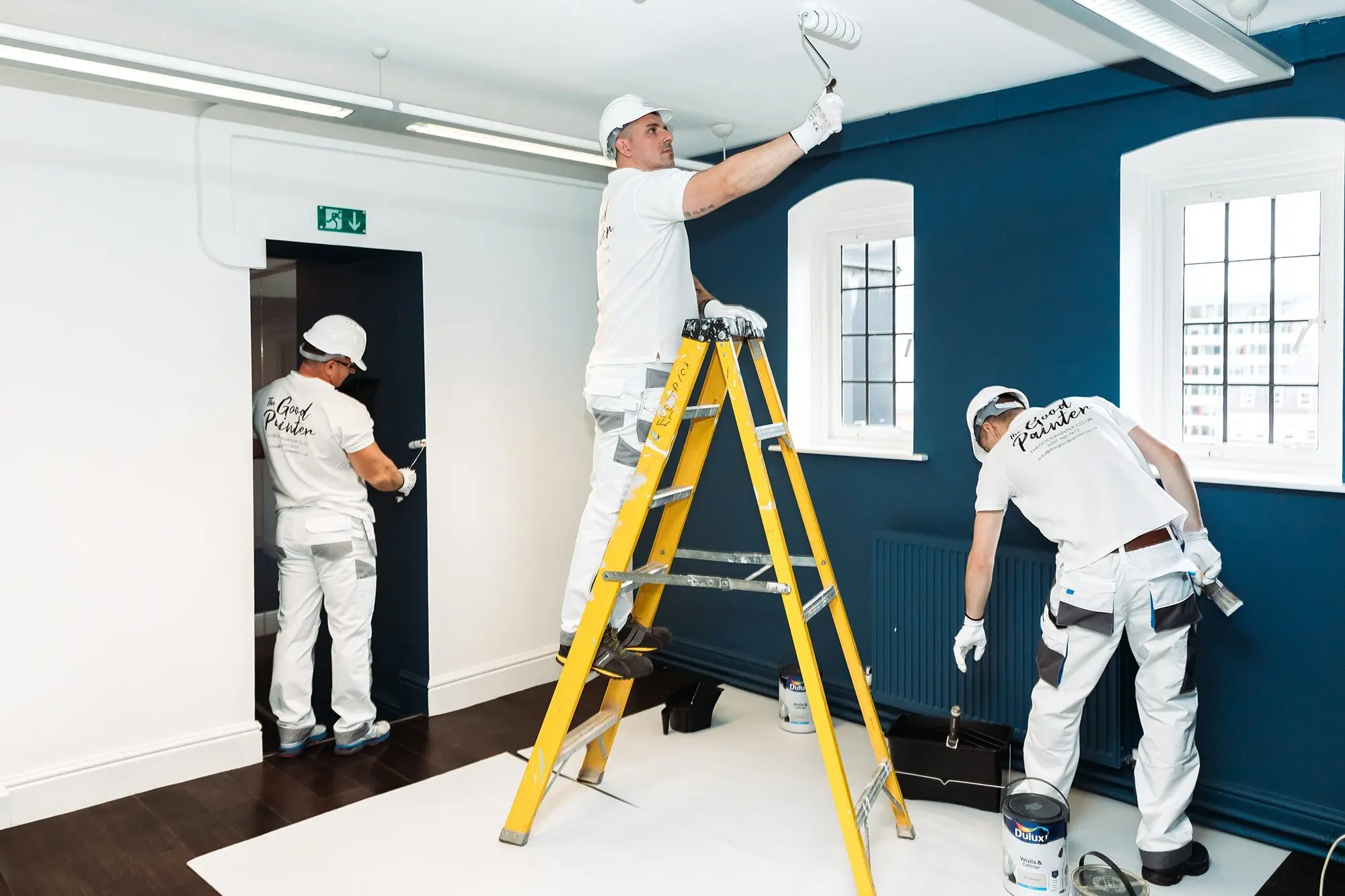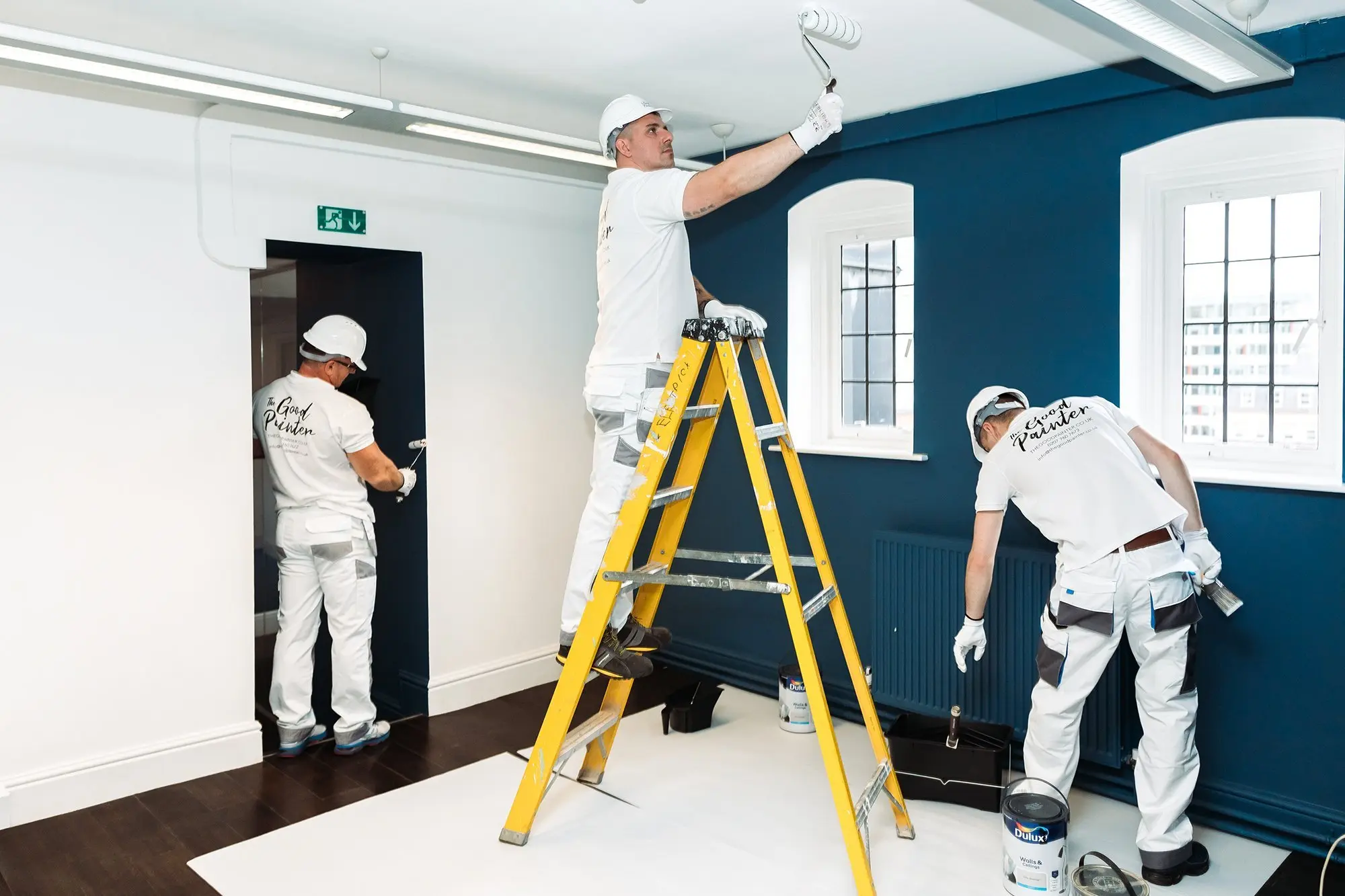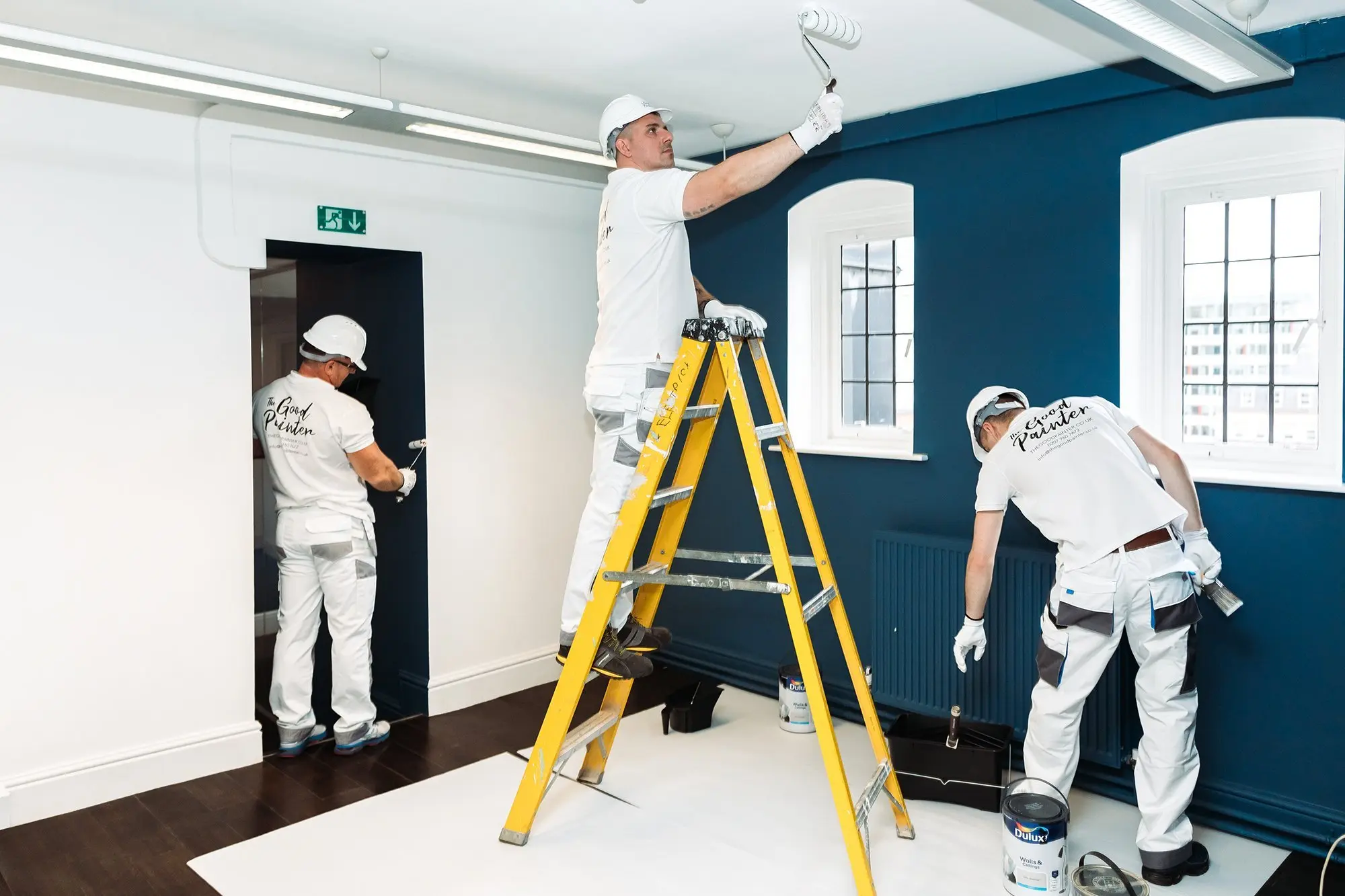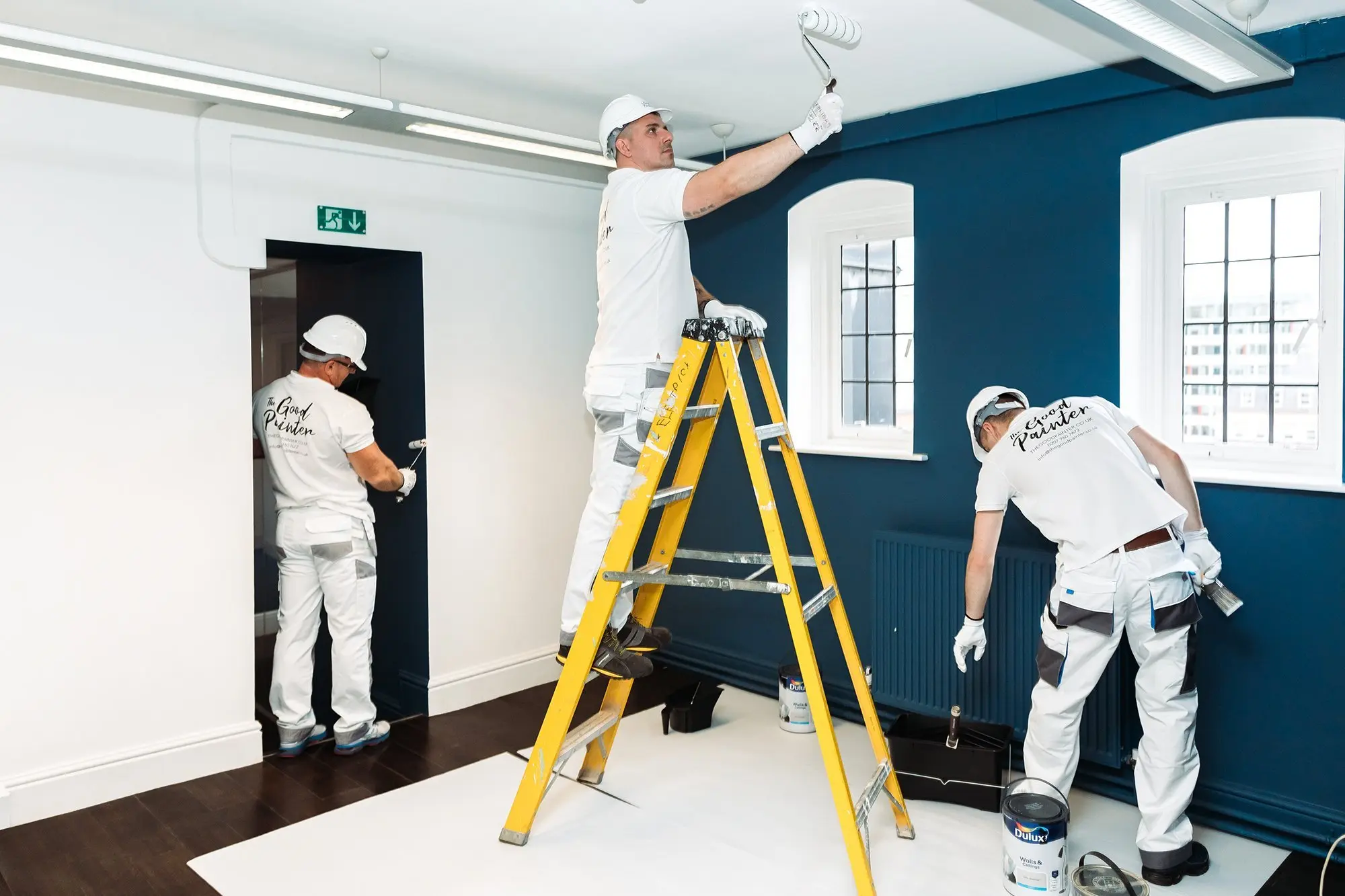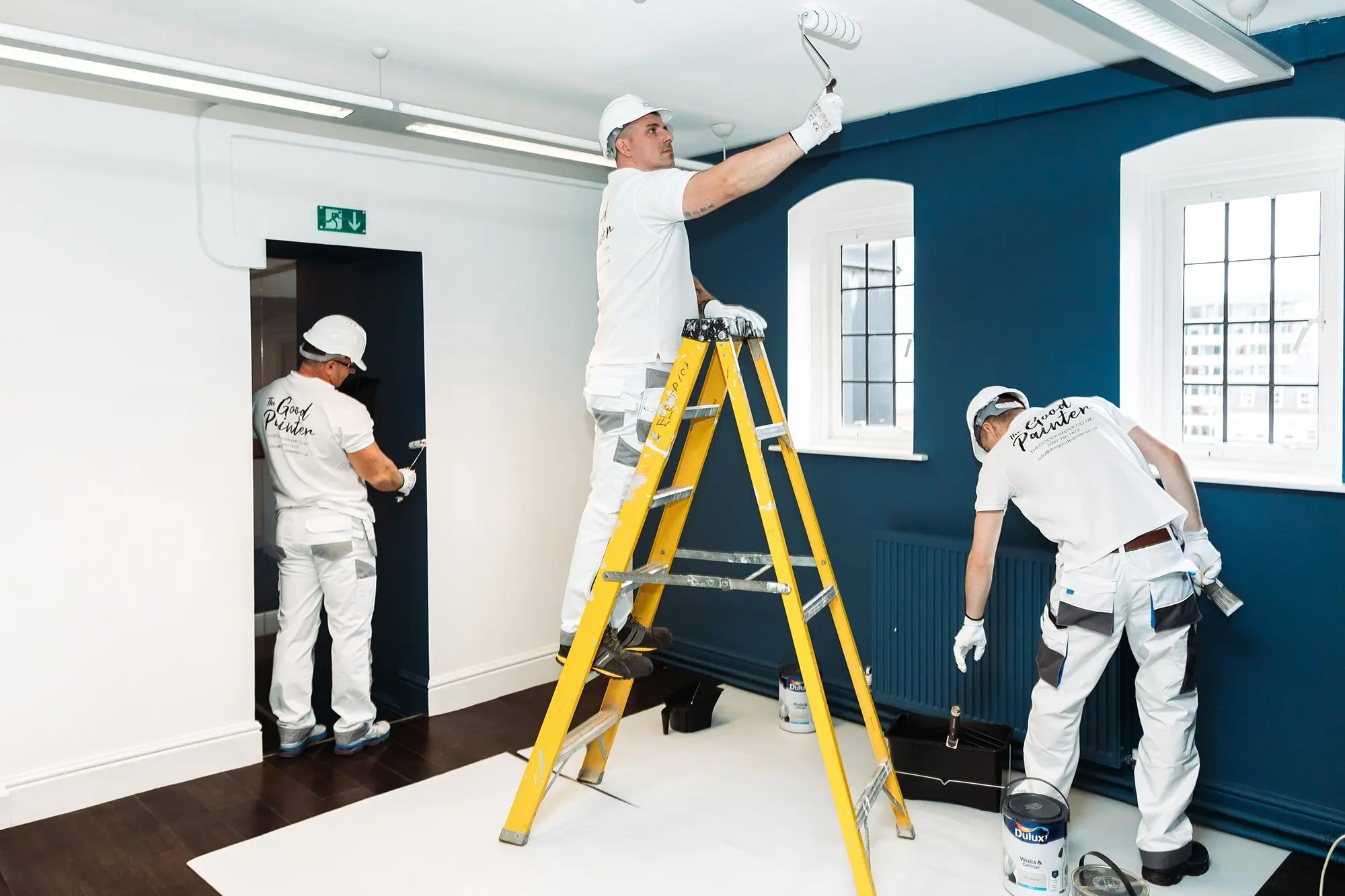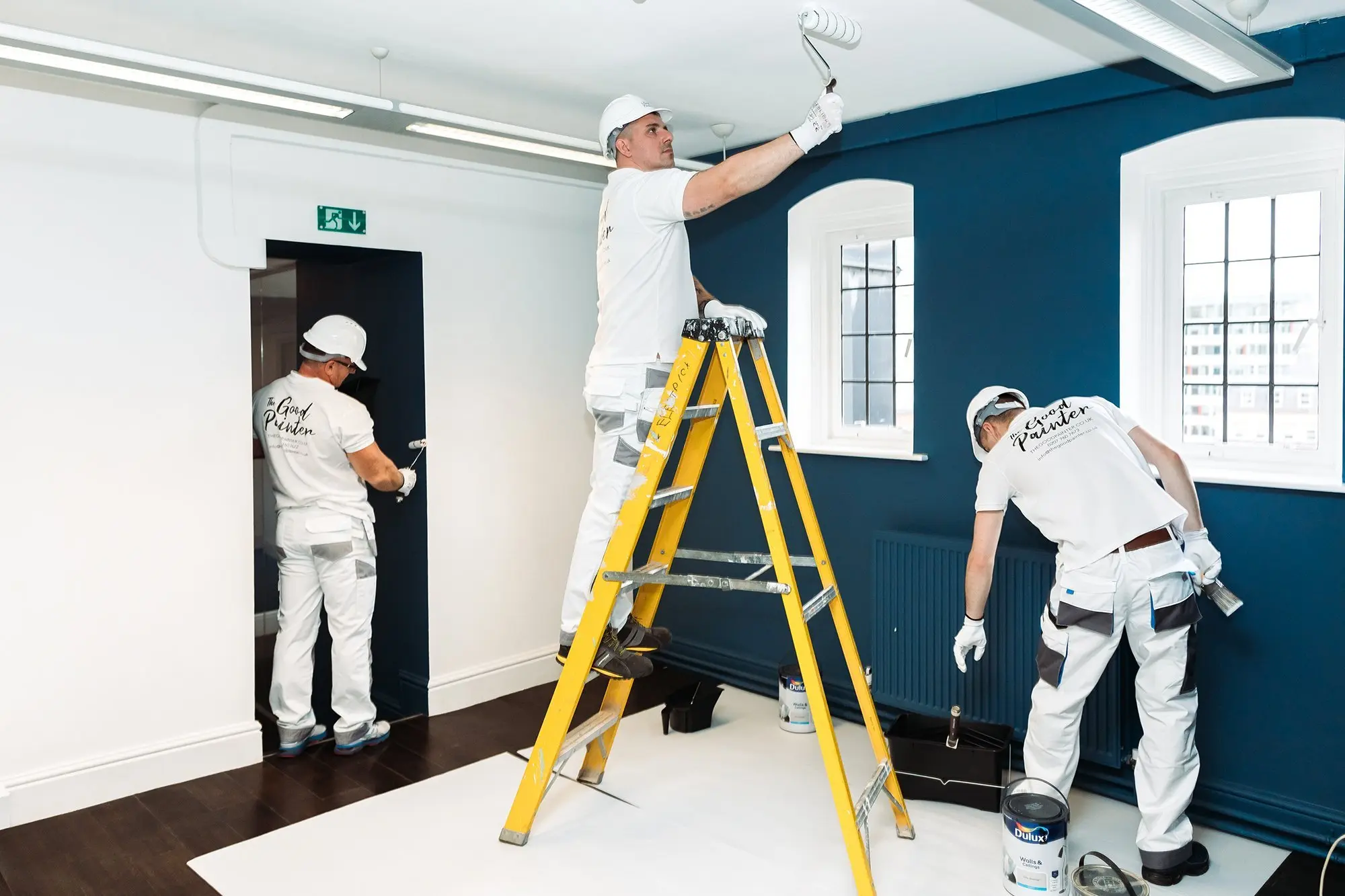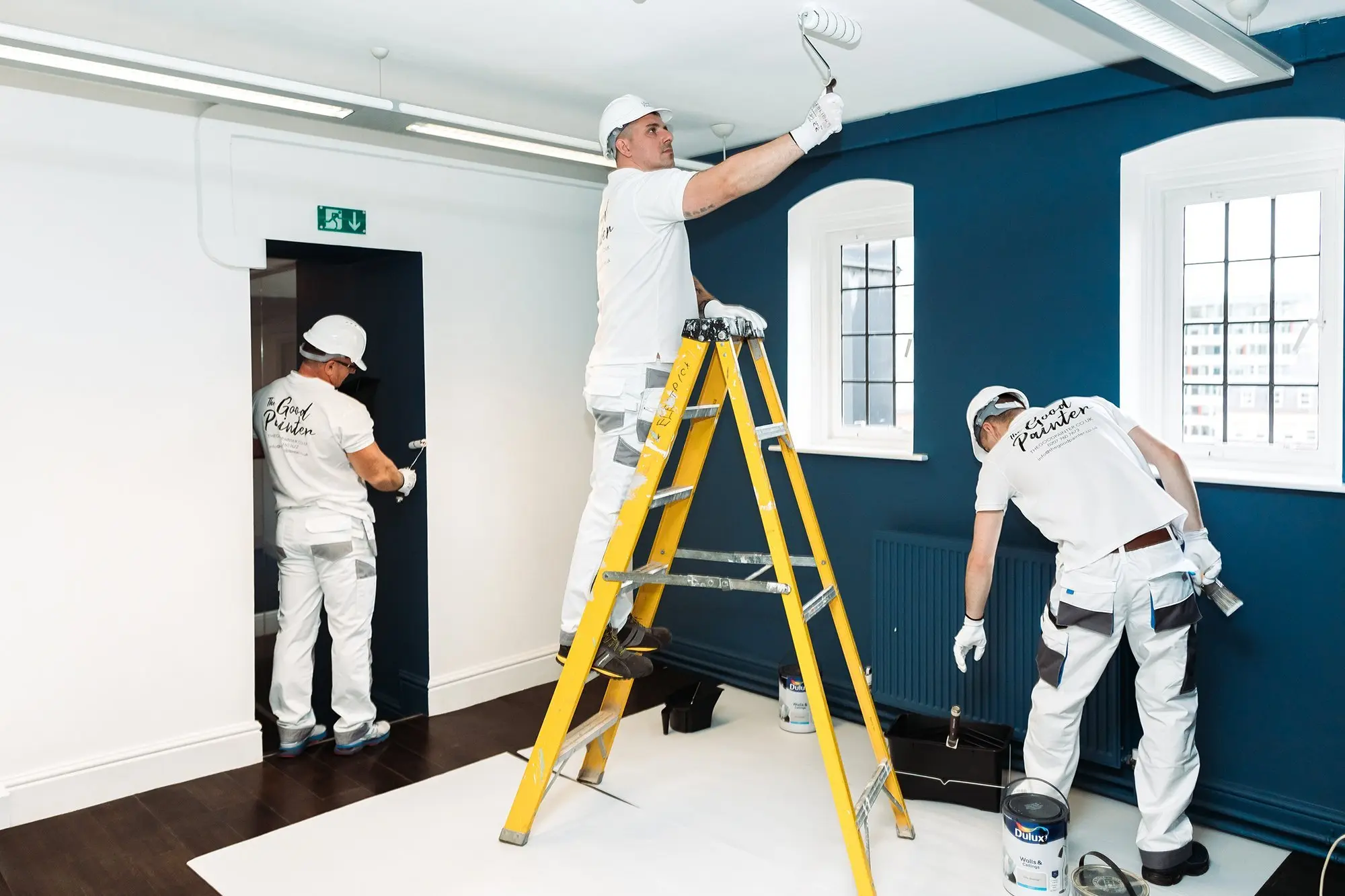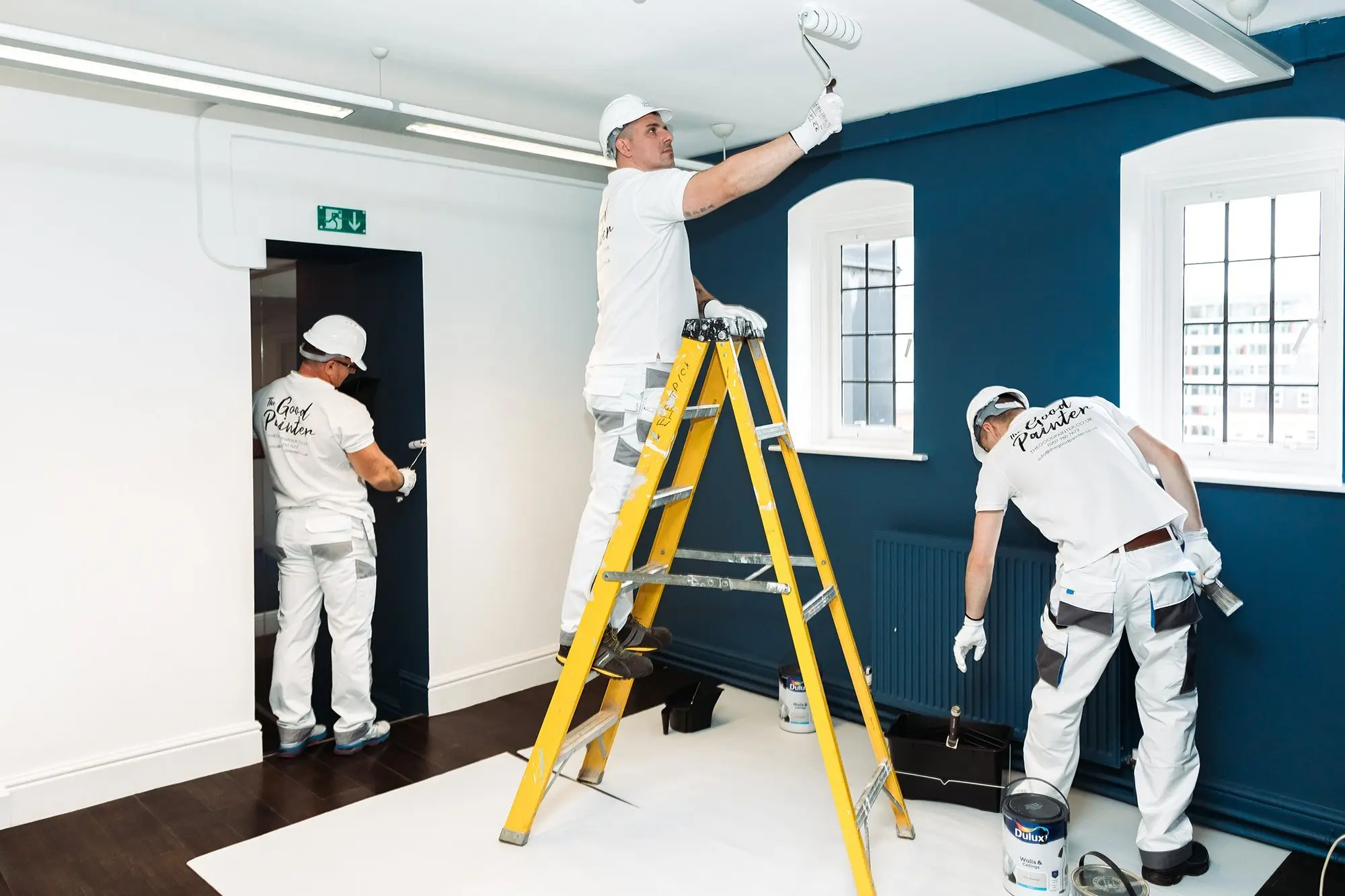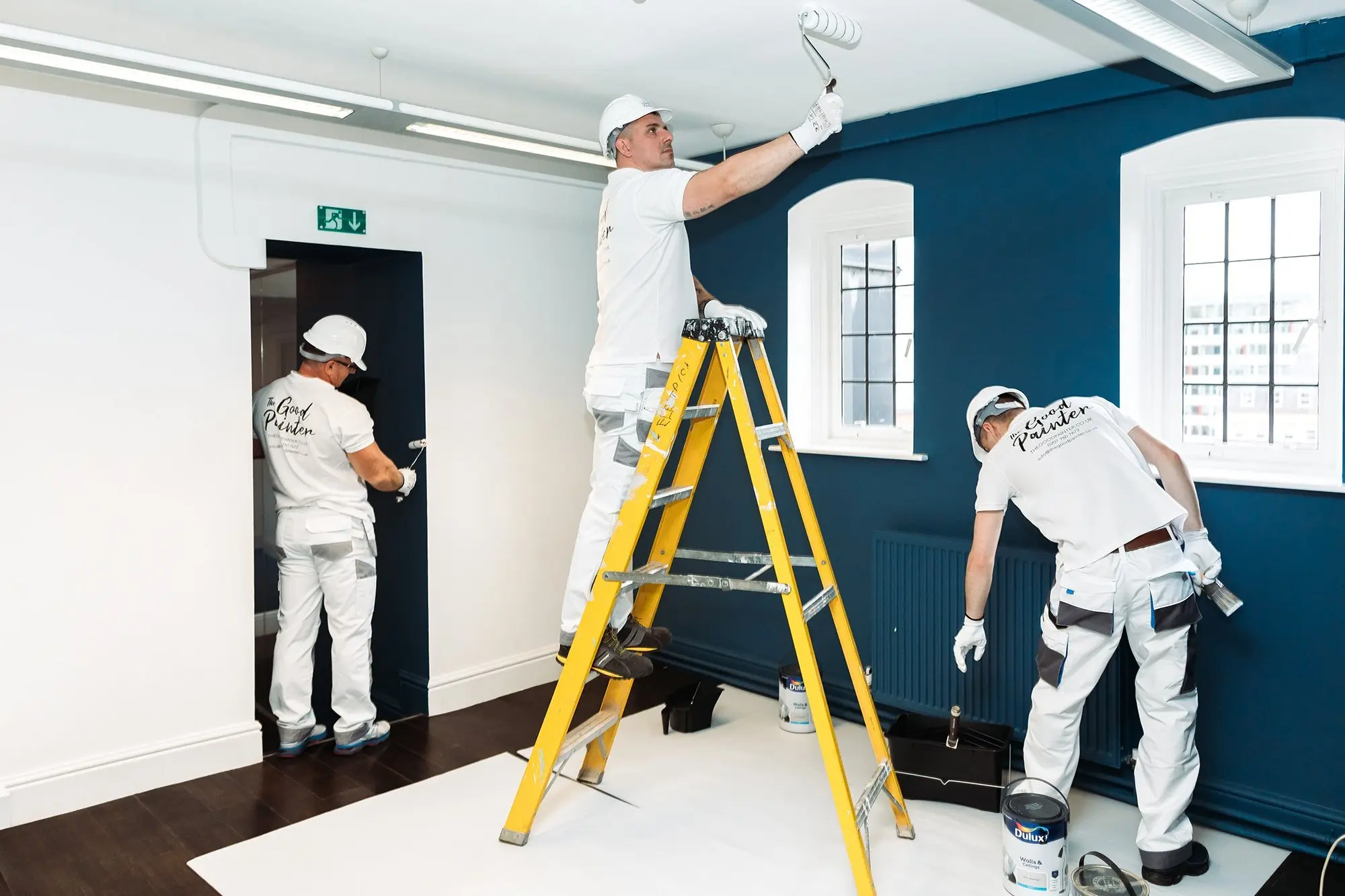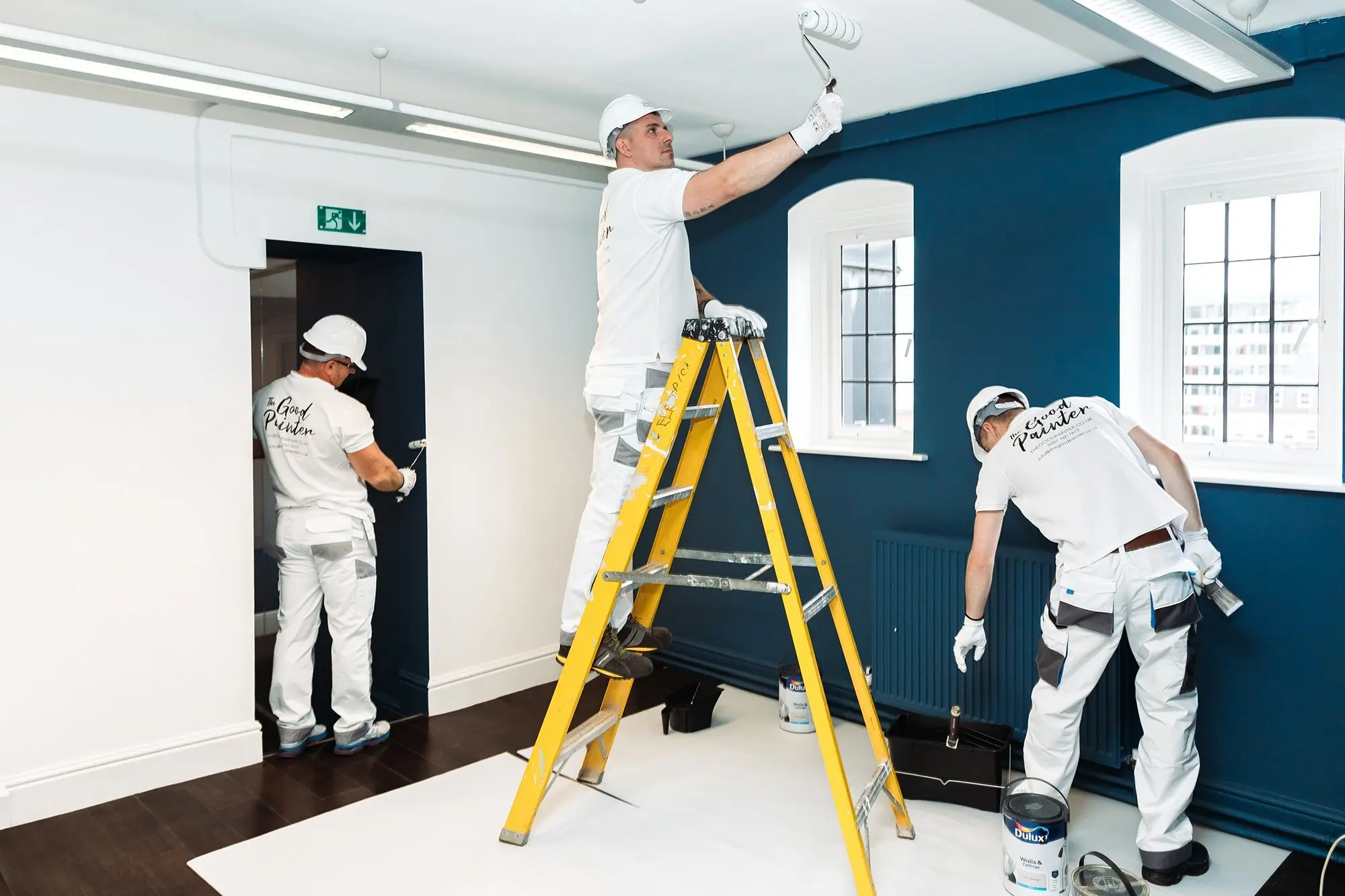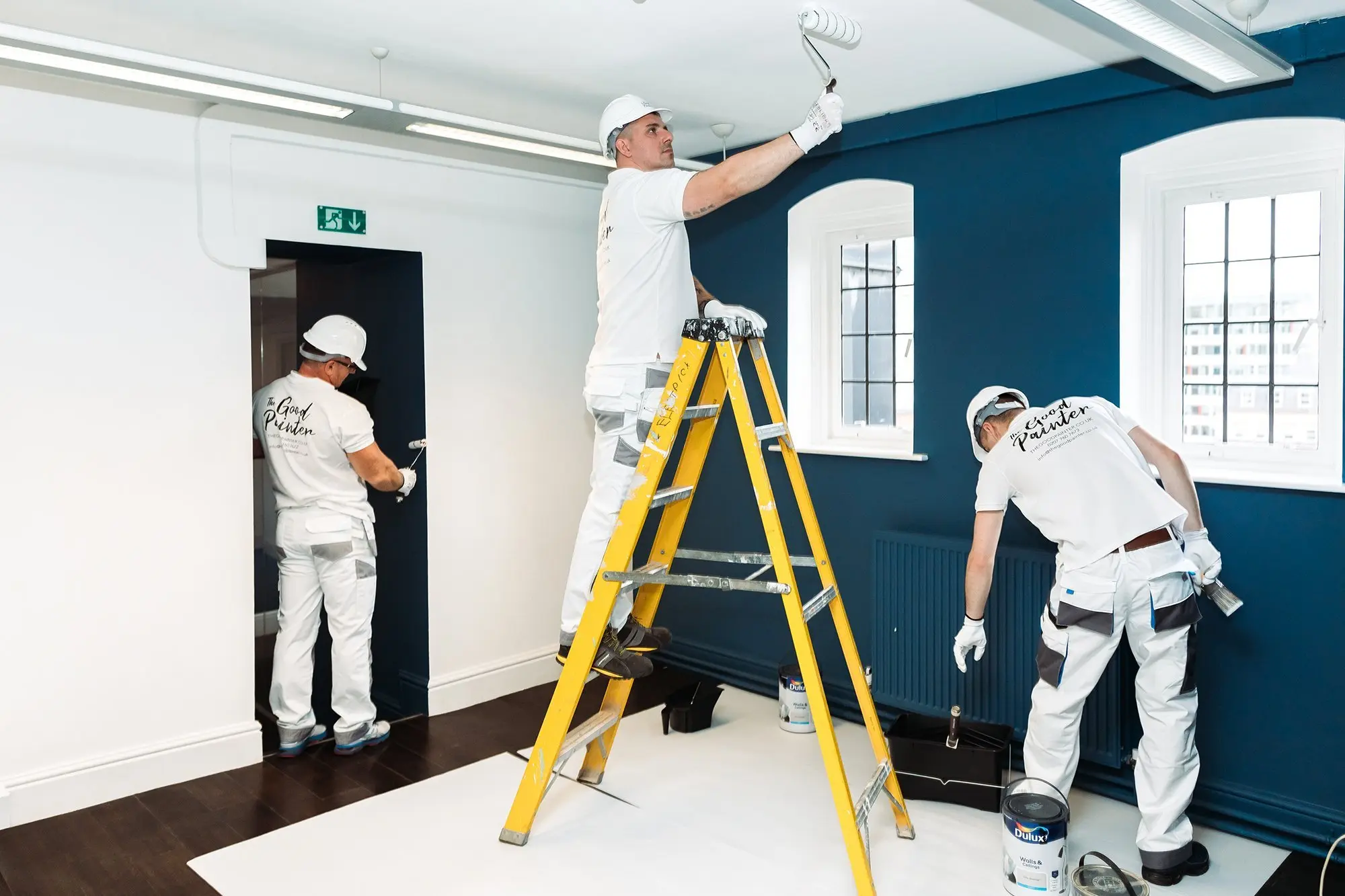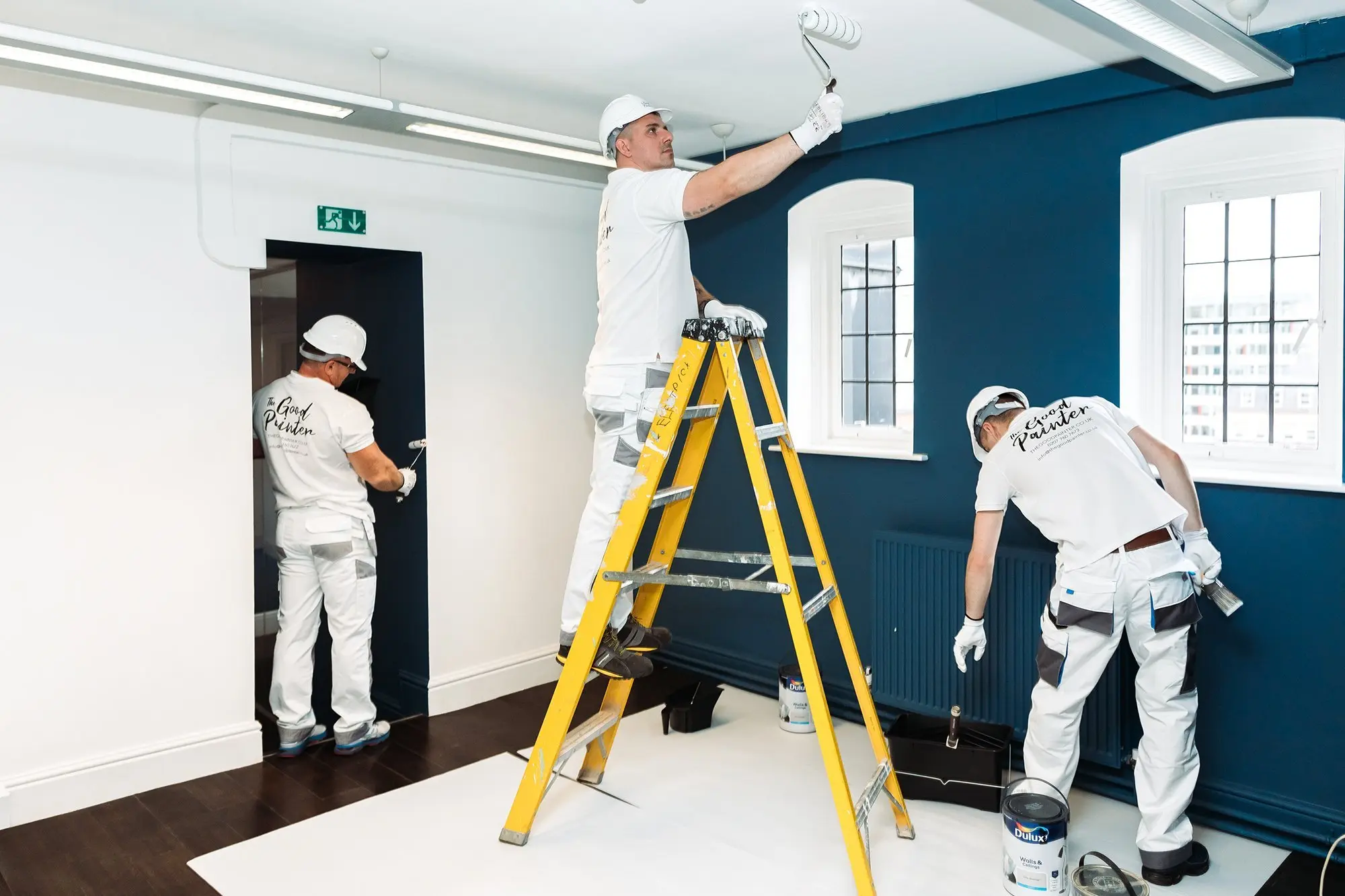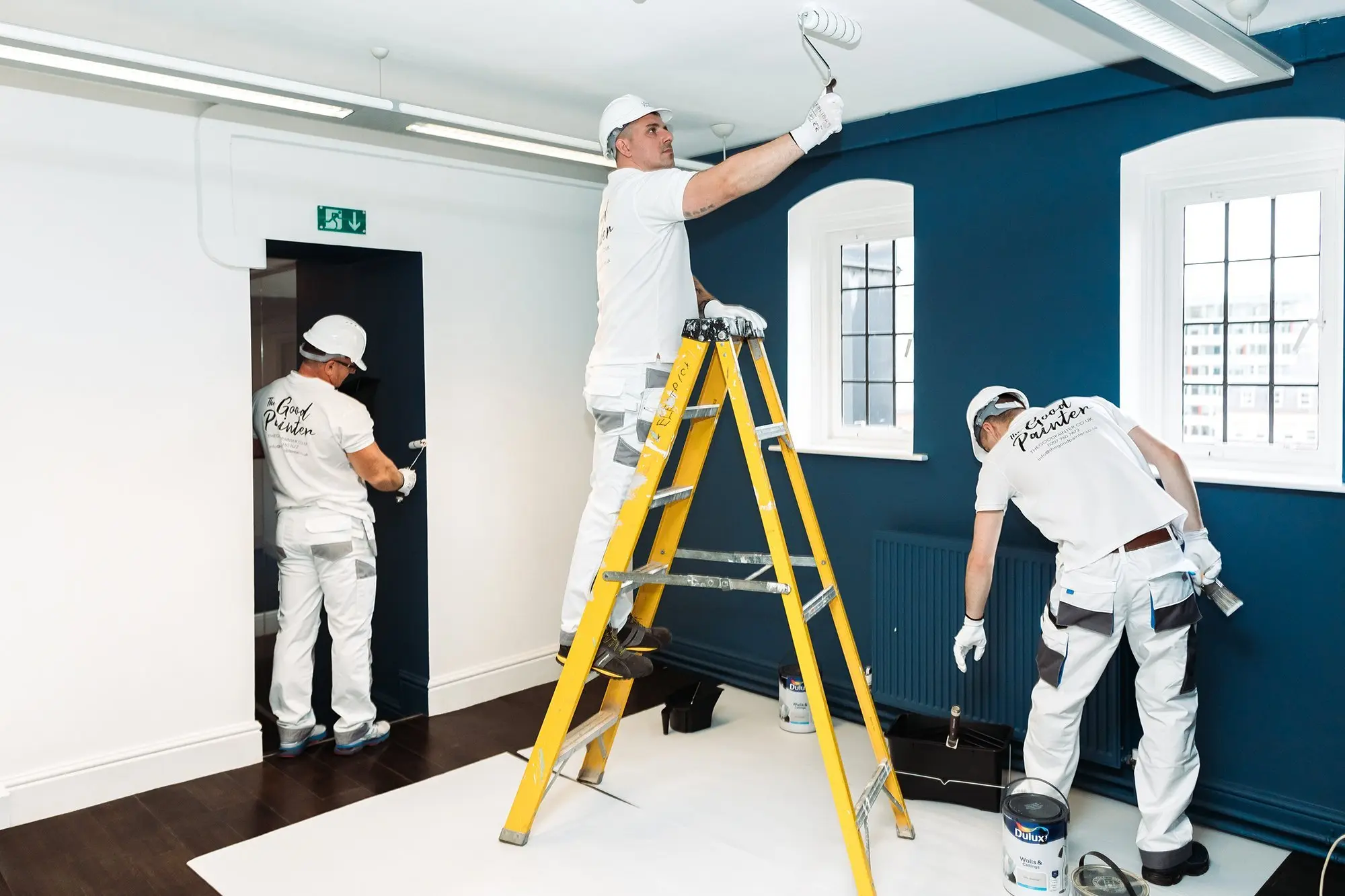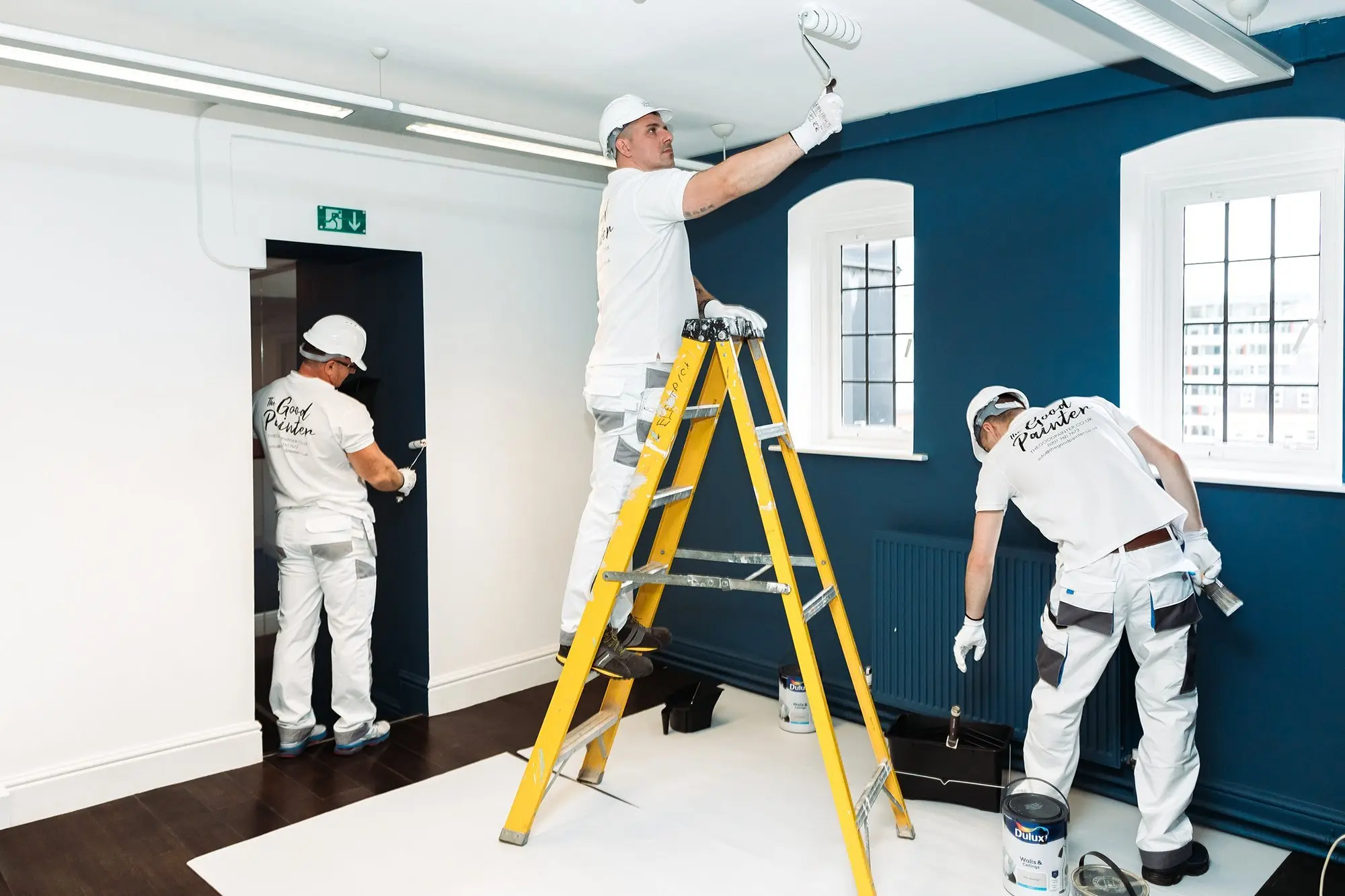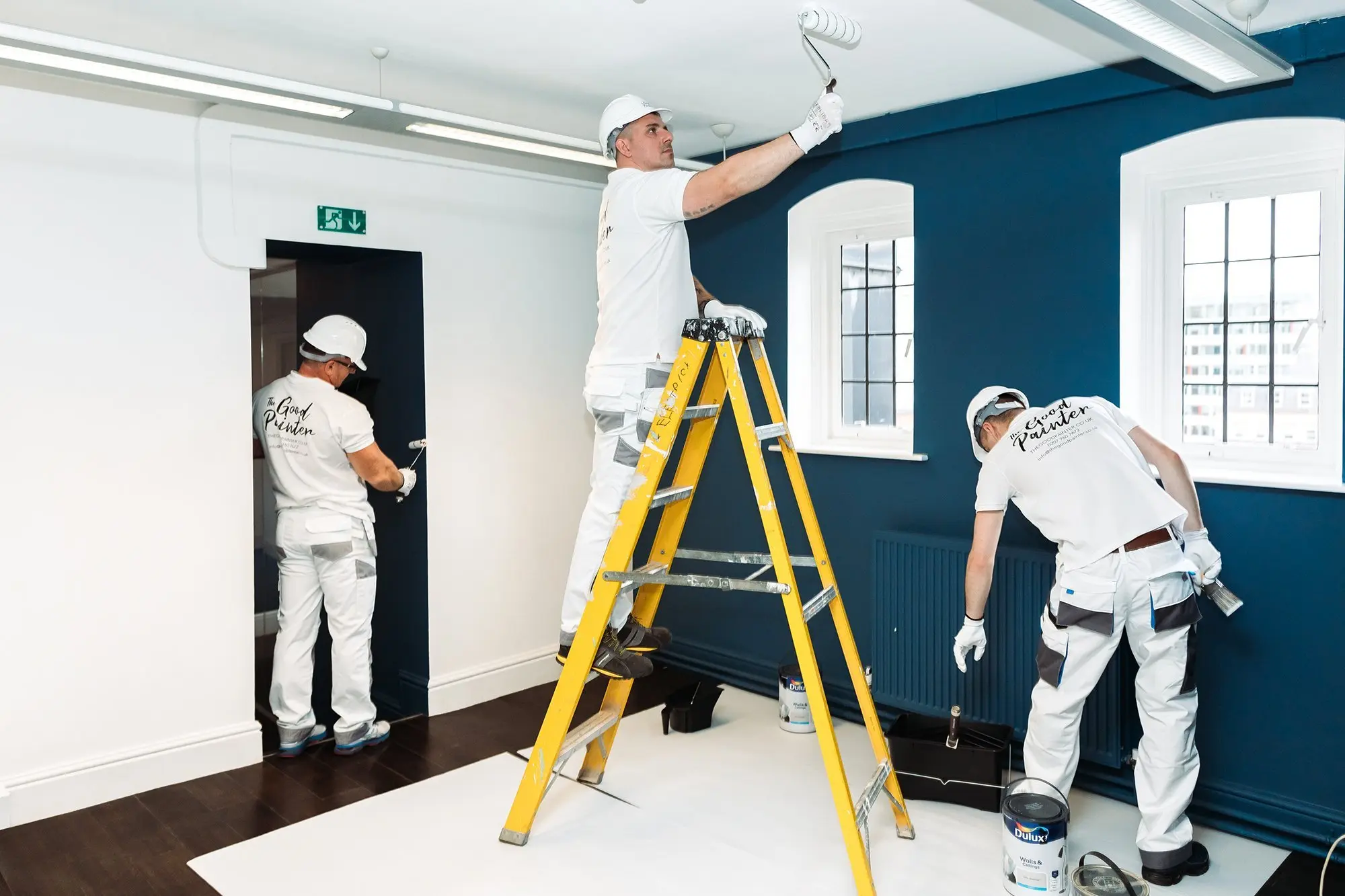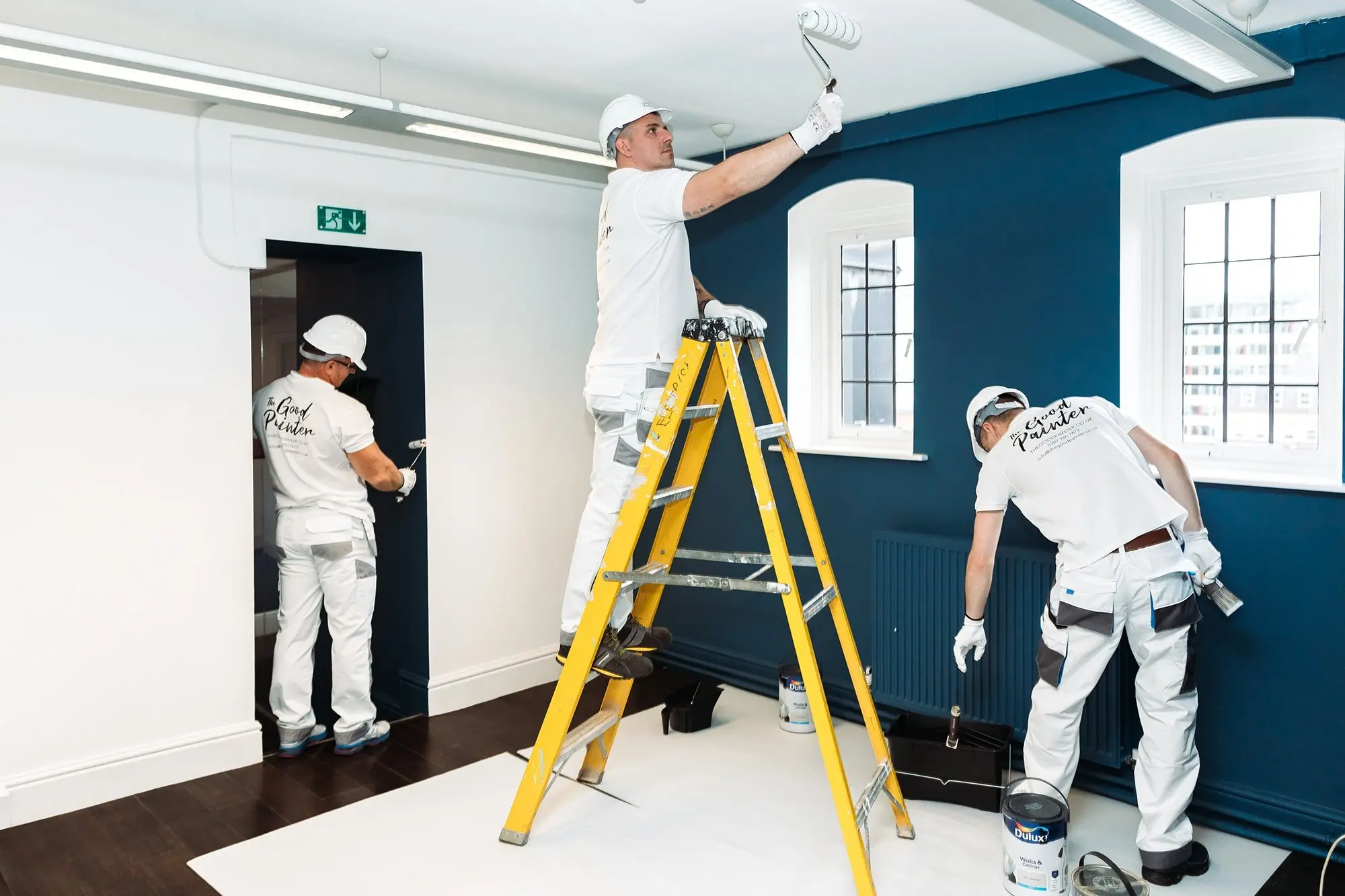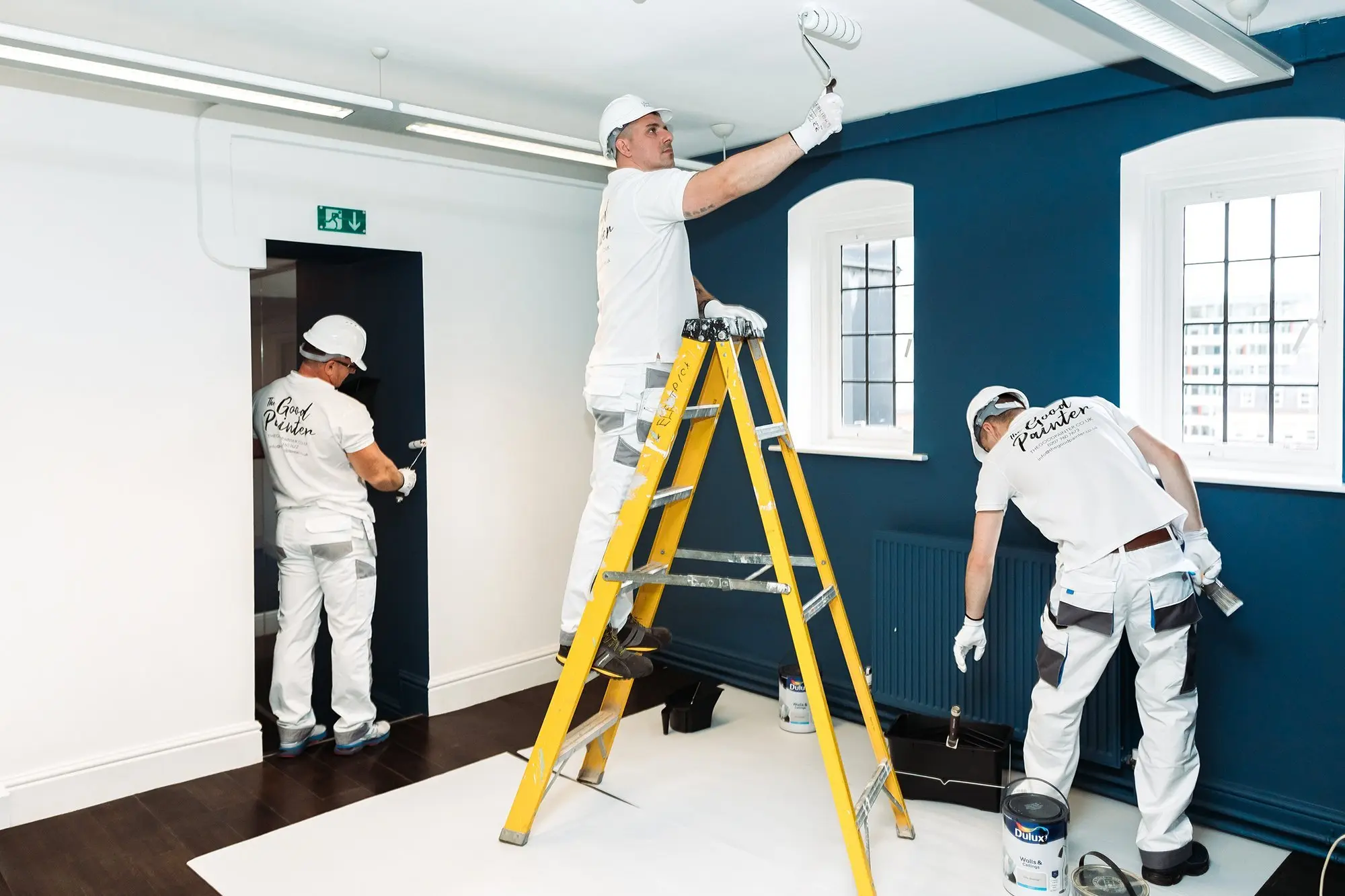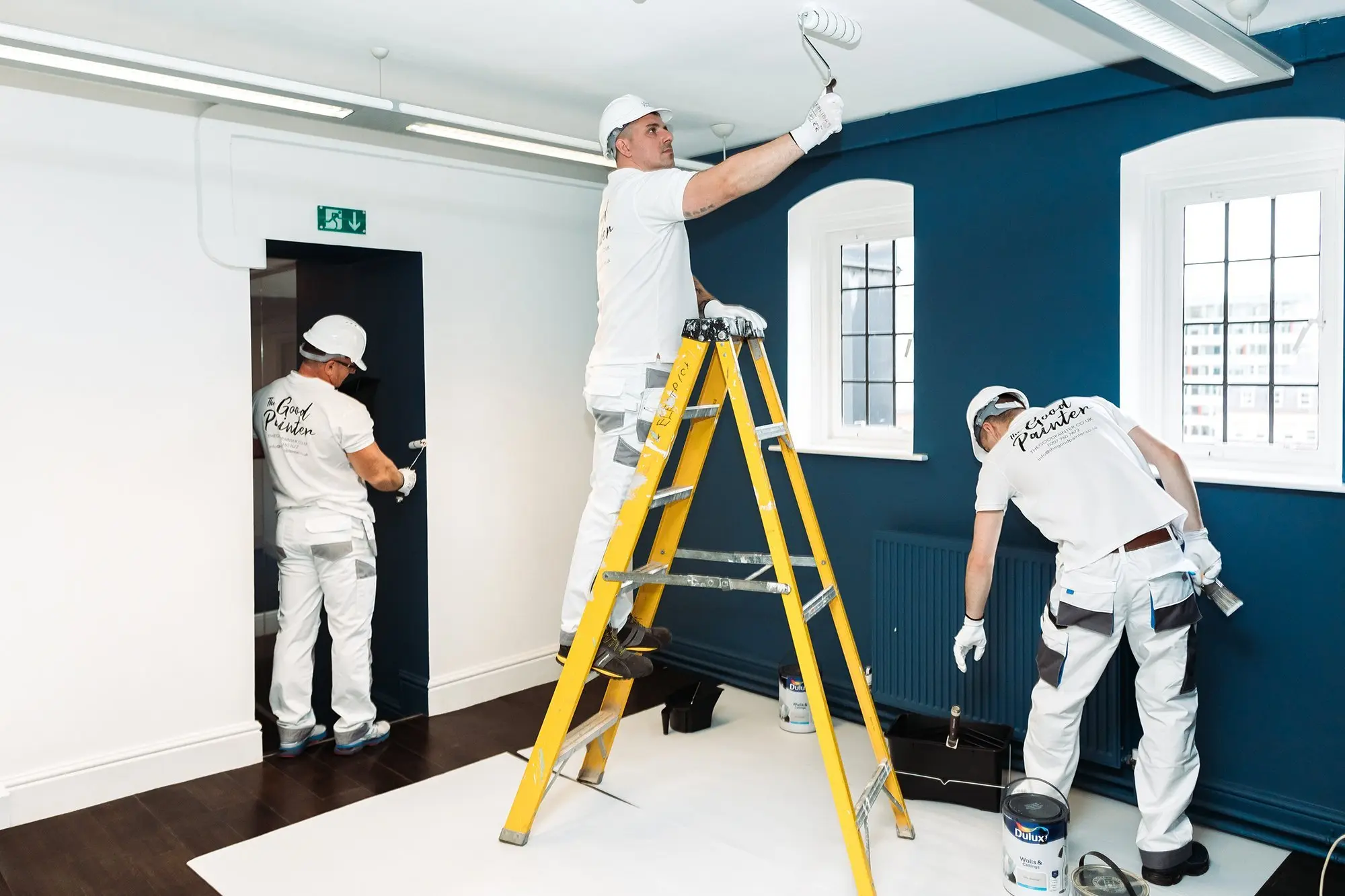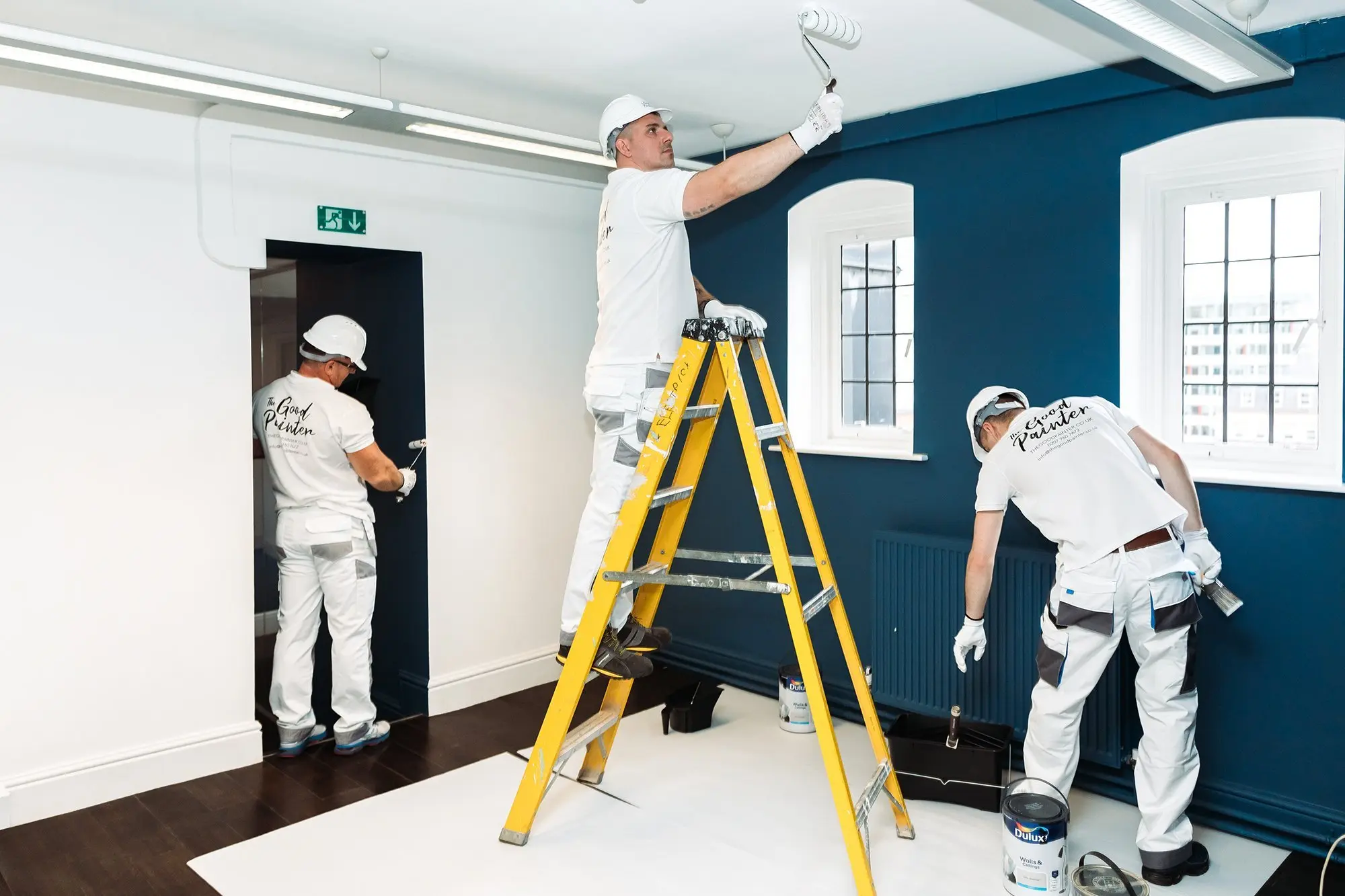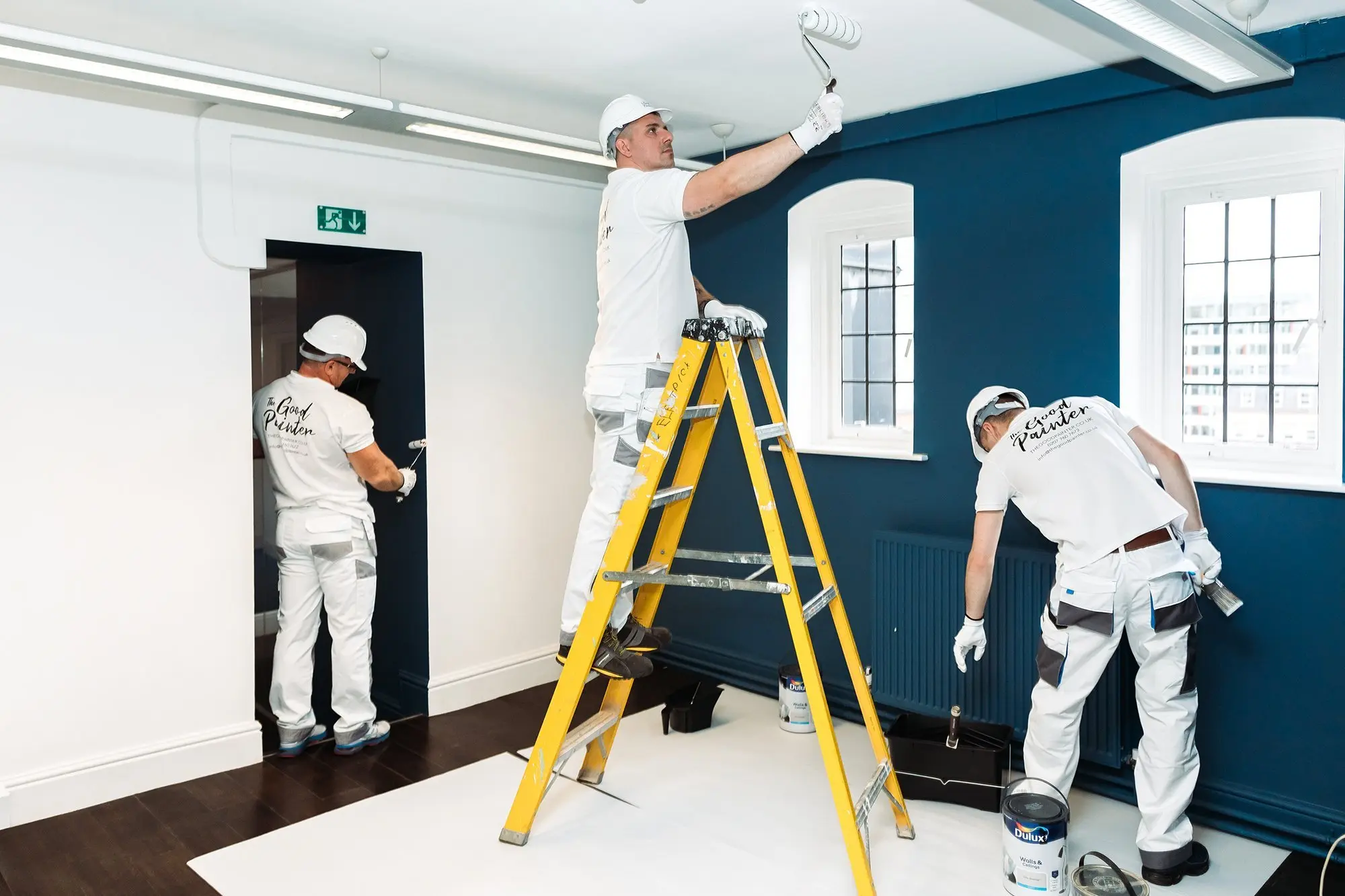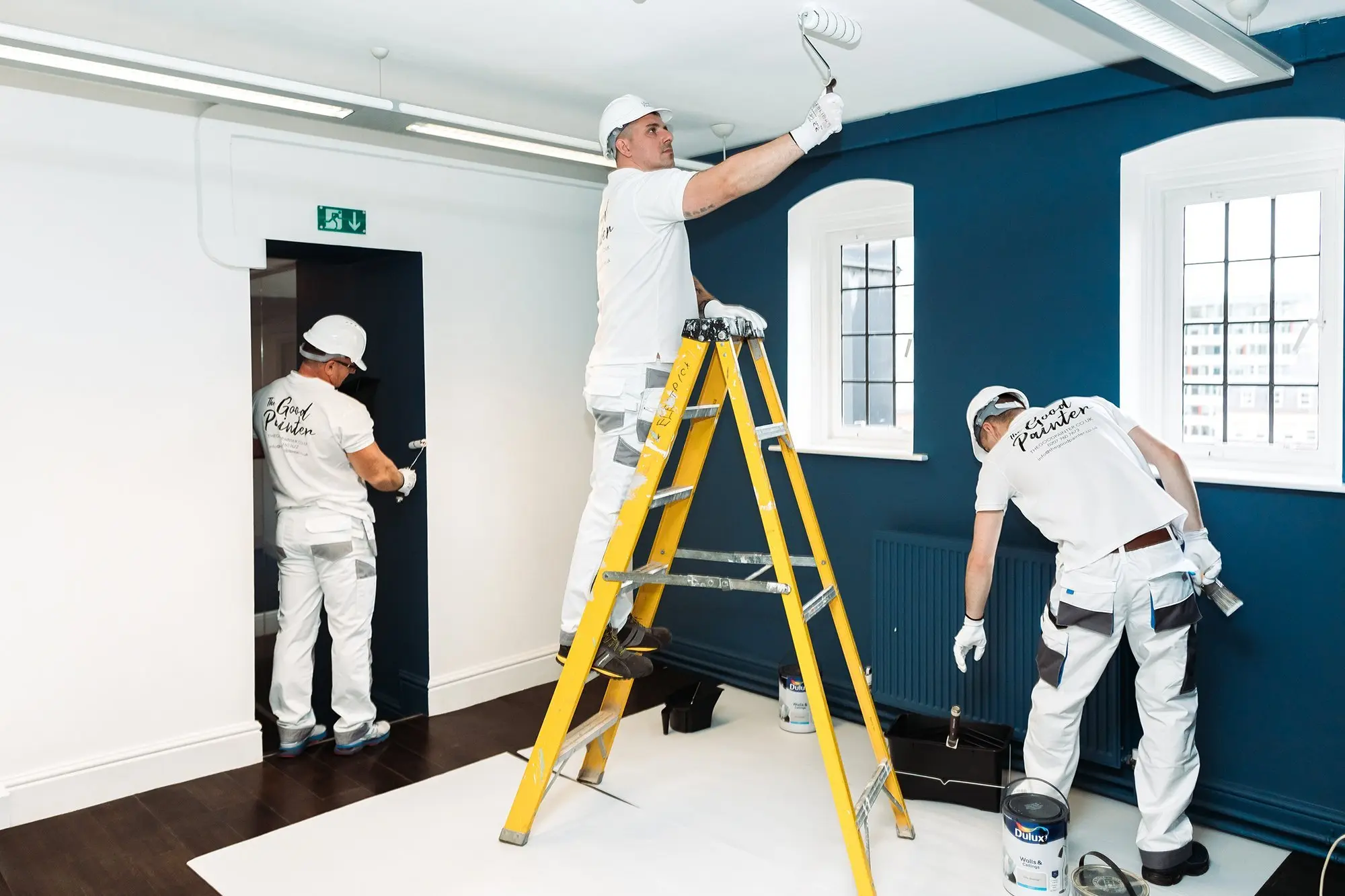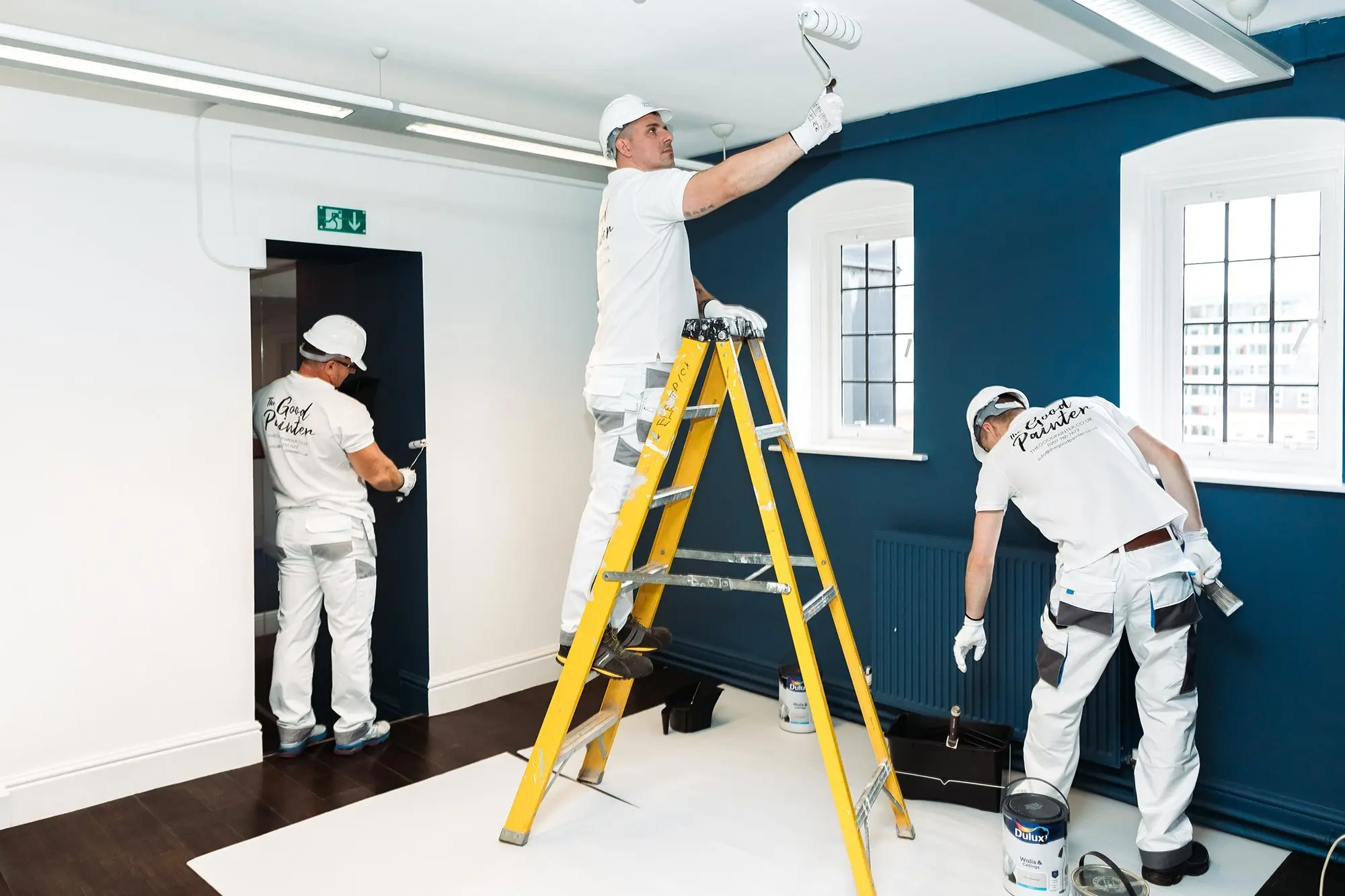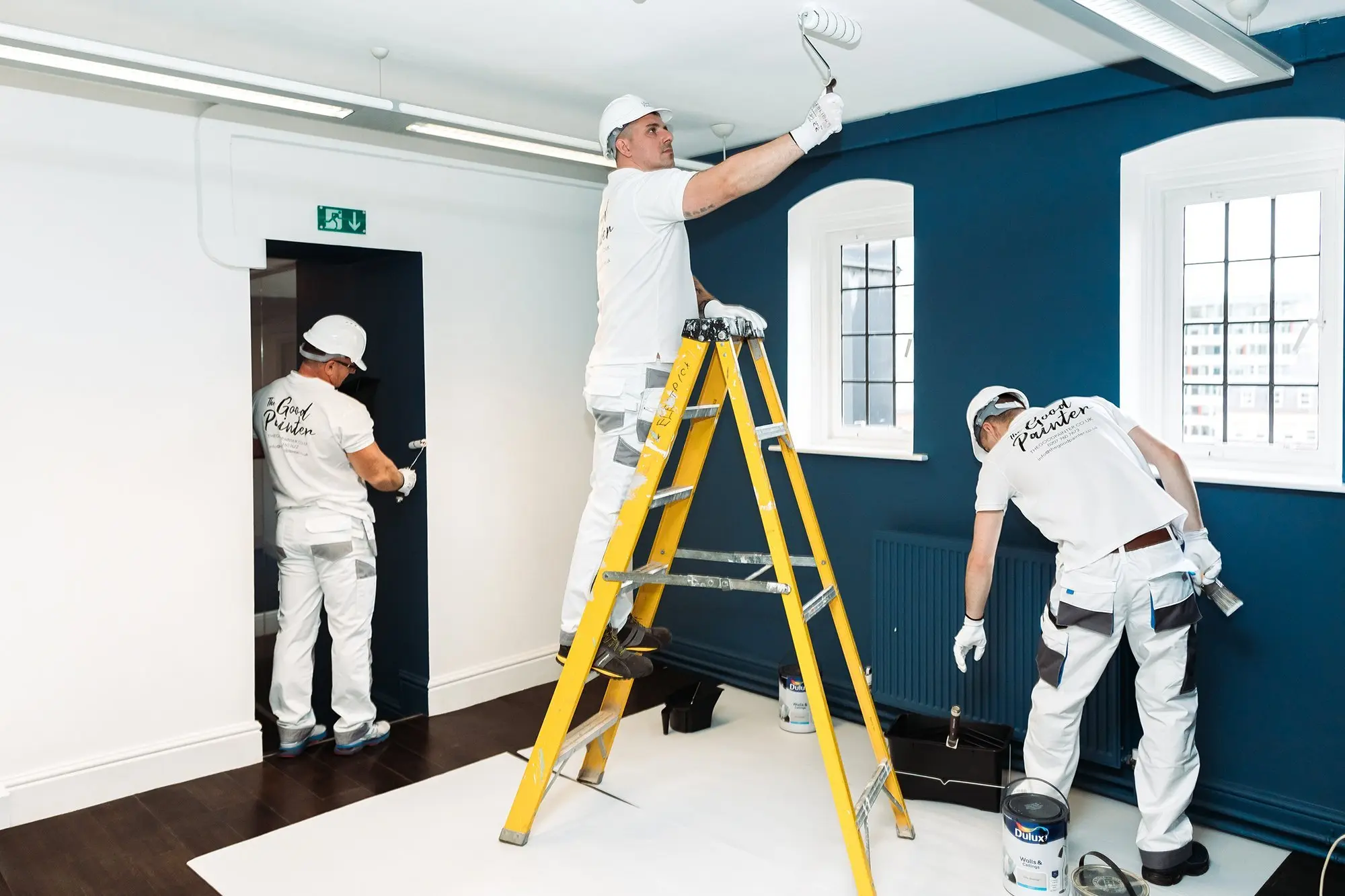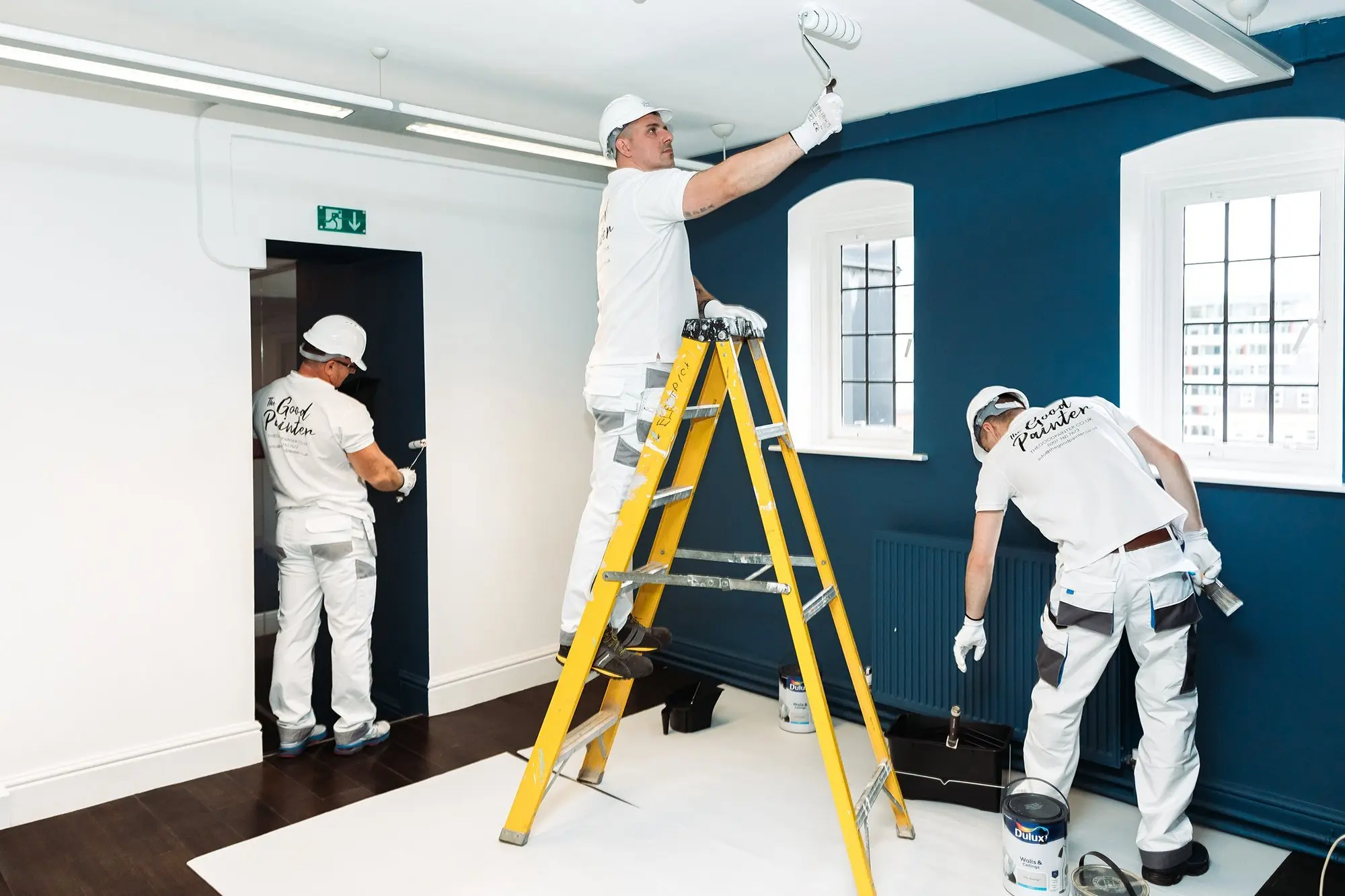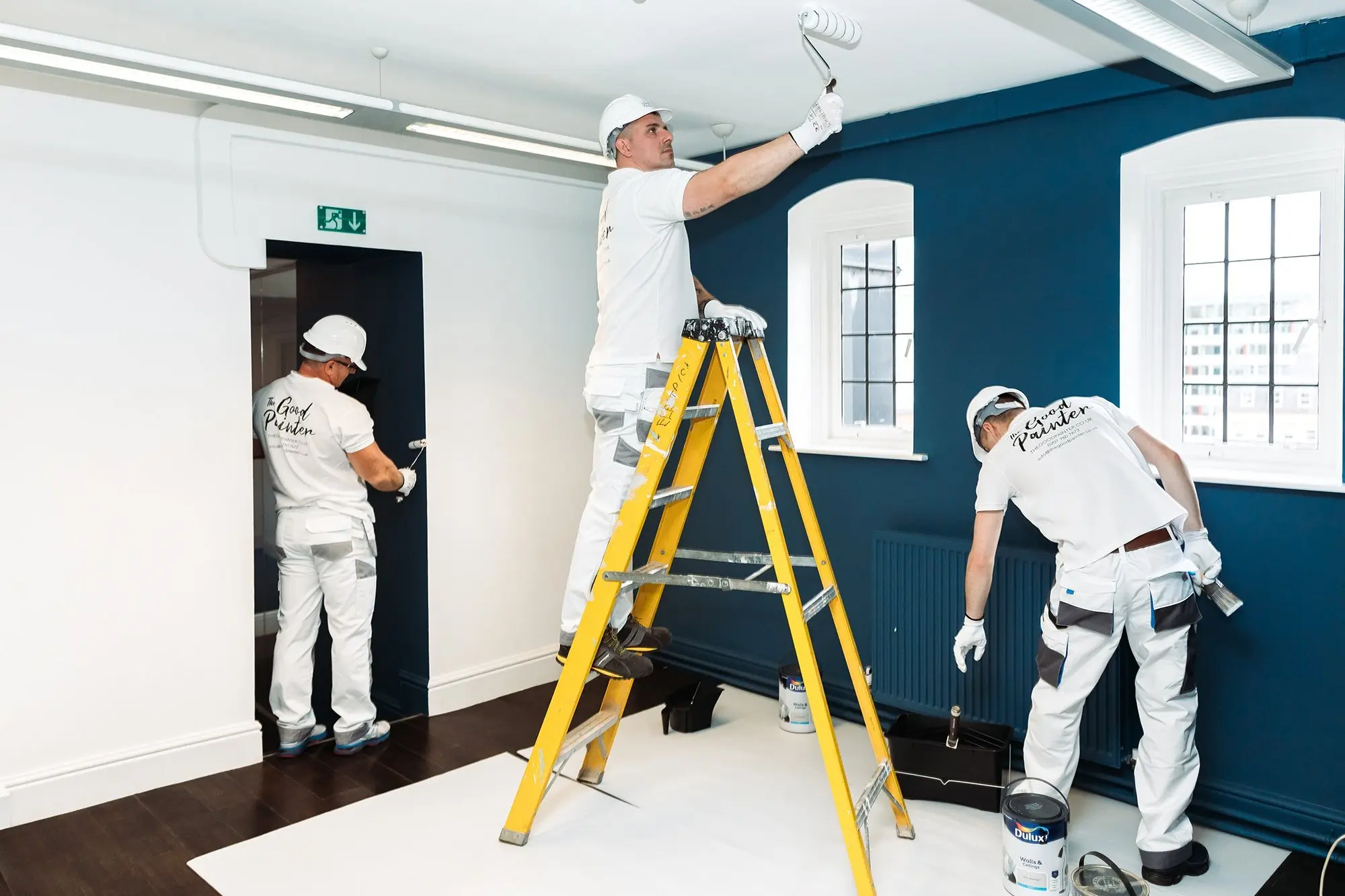As a painter and decorator running your own business, protecting your employees should be one of your top prio…
Painter & Decorator Vehicle Insurance: Essential Coverage for Mobile Decorating Professionals
Introduction
For painters and decorators who rely on vehicles to transport equipment, materials, and themselves to job sites, having the right vehicle insurance is absolutely crucial. Whether you're driving a van loaded with ladders, paint, and decorating tools, or using a car to travel between residential projects, standard personal vehicle insurance simply won't provide adequate protection for your business operations.
Painter and decorator vehicle insurance is specifically designed to cover the unique risks faced by decorating professionals who use vehicles as an integral part of their business. This specialized coverage goes beyond basic motor insurance to protect your livelihood, equipment, and business operations when you're on the road.
Why Standard Car Insurance Isn't Enough
Most personal car insurance policies explicitly exclude business use, particularly when carrying tools, equipment, or materials for commercial purposes. If you're using your vehicle for painting and decorating work without proper commercial coverage, you could face:
- Voided insurance claims if you have an accident while working
- Personal liability for damages to third parties
- No coverage for stolen tools and equipment
- Potential prosecution for driving without valid insurance
- Financial ruin if involved in a serious accident
Types of Vehicle Insurance for Painters and Decorators
Commercial Vehicle Insurance
This is the most comprehensive option for decorating professionals who use their vehicles primarily for business purposes. It covers vehicles used for carrying tools, materials, and equipment to job sites.
Business Car Insurance
Suitable for decorators who use their personal vehicle occasionally for business purposes, such as traveling to quote jobs or picking up small amounts of materials.
Van Insurance
Specifically designed for tradespeople who use vans to transport equipment and materials. This is often the most cost-effective option for painters and decorators with significant equipment needs.
Fleet Insurance
For larger decorating businesses with multiple vehicles, fleet insurance can provide comprehensive coverage for all business vehicles under a single policy.
Key Coverage Areas
Vehicle Damage Protection
Covers repair or replacement costs if your vehicle is damaged in an accident, fire, theft, or vandalism. This includes protection for any modifications made to accommodate decorating equipment.
Third Party Liability
Essential coverage that protects you if your vehicle causes injury to others or damage to their property. This includes coverage for accidents caused while loading or unloading equipment.
Tools and Equipment Cover
Protects the decorating tools, equipment, and materials carried in your vehicle against theft, damage, or loss. This can include:
- Brushes, rollers, and decorating tools
- Ladders and scaffolding equipment
- Paint spraying equipment
- Protective sheeting and coverings
- Paint and decorating materials
Business Interruption
Provides financial support if your vehicle is off the road due to an insured incident, helping cover lost income and additional expenses like vehicle rental.
Legal Expenses
Covers legal costs if you need to pursue or defend legal action related to a vehicle incident during business operations.
Goods in Transit
Protects materials and finished work being transported to or from job sites, including expensive wallpapers, specialist paints, or completed decorative items.
Specific Risks for Painter and Decorator Vehicles
Paint and Chemical Spills
Vehicles carrying paint, solvents, and other decorating materials face unique risks from spills that could damage the vehicle interior or create environmental hazards.
Equipment Theft
Decorating tools and equipment are attractive targets for thieves, particularly when left in vehicles overnight or during job breaks.
Weight and Loading Issues
Overloading vehicles with heavy materials like paint tins can affect vehicle handling and potentially void insurance if weight limits are exceeded.
Ladder and Equipment Damage
Long ladders and scaffolding equipment can be damaged during transport or cause damage to other vehicles if not properly secured.
Multiple Site Visits
Decorators often visit multiple sites in a day, increasing exposure to traffic risks and parking challenges in residential areas.
Factors Affecting Insurance Premiums
Vehicle Type and Modifications
The type of vehicle, its age, value, and any modifications for carrying decorating equipment will affect premiums. Purpose-built trade vehicles may attract different rates than converted personal vehicles.
Driver Experience and History
Your driving record, age, and experience in the decorating trade will influence costs. Clean driving records and trade qualifications can help reduce premiums.
Annual Mileage
Higher mileage typically means higher premiums, but accurate estimates are important as underestimating could void coverage.
Security Measures
Installing alarms, immobilizers, tracking devices, and secure storage for tools can significantly reduce insurance costs.
Geographic Area
Operating in areas with higher crime rates or traffic congestion may increase premiums due to elevated risk levels.
Business Size and Turnover
Larger decorating businesses with higher turnovers may face different risk assessments and premium structures.
Choosing the Right Coverage Level
Comprehensive Cover
Provides the most extensive protection including accidental damage, theft, fire, and third-party liability. Recommended for most decorating professionals.
Third Party, Fire and Theft
A mid-level option that covers third-party liability plus protection against fire and theft, but not accidental damage to your own vehicle.
Third Party Only
The minimum legal requirement, covering only damage to other people and property. Generally not recommended for business vehicles carrying valuable equipment.
Essential Policy Features to Look For
Tool Cover Limits
Ensure the policy provides adequate coverage limits for your tools and equipment. Consider whether cover applies 24/7 or only during working hours.
Replacement Vehicle
Look for policies that provide a replacement vehicle if yours is off the road, ensuring business continuity.
European Cover
If you work abroad or travel through Europe, ensure your policy provides adequate overseas coverage.
Loading and Unloading Cover
Verify that coverage extends to loading and unloading activities, as accidents often occur during these operations.
Public Liability Extension
Some policies include public liability coverage for incidents involving your vehicle during business operations.
Cost Management Strategies
Accurate Risk Assessment
Provide accurate information about your business operations, vehicle use, and security measures to ensure appropriate pricing.
Security Investments
Installing quality security systems, using secure parking, and implementing tool security measures can reduce premiums significantly.
Driver Training
Advanced driving courses or trade-specific training can demonstrate reduced risk to insurers.
Policy Bundling
Combining vehicle insurance with other business insurances like public liability or professional indemnity can often reduce overall costs.
Annual vs Monthly Payments
Paying annually rather than monthly typically reduces the total cost by avoiding interest charges.
Claims Management and Prevention
Incident Reporting
Establish clear procedures for reporting accidents or incidents, ensuring all relevant details are captured promptly.
Preventive Measures
Implement safety protocols for loading, securing equipment, and driving to reduce the likelihood of claims.
Regular Vehicle Maintenance
Maintain vehicles in good condition to prevent breakdowns and ensure roadworthiness, which can affect insurance validity.
Equipment Security
Develop robust procedures for securing tools and materials, particularly when vehicles are parked overnight or unattended.
Legal Requirements and Compliance
Minimum Insurance Requirements
Ensure your policy meets legal minimums for business vehicle use, including appropriate liability limits.
Operator Licensing
Some decorating businesses may require operator licenses for larger vehicles, affecting insurance requirements.
Health and Safety Compliance
Maintain compliance with health and safety regulations for transporting materials and equipment.
Environmental Considerations
Ensure proper procedures for transporting and disposing of paint and chemical waste to avoid environmental liability.
Making a Claim
Immediate Actions
Know what to do immediately after an incident, including ensuring safety, gathering evidence, and contacting emergency services if needed.
Documentation Requirements
Understand what documentation and evidence insurers require for different types of claims.
Claim Process Timeline
Familiarize yourself with typical claim processing times and what to expect during the assessment process.
Dispute Resolution
Know your options if you disagree with a claim decision, including internal appeals and external ombudsman services.
Industry-Specific Considerations
Seasonal Variations
Decorating work often varies seasonally, affecting vehicle use patterns and risk exposure throughout the year.
Specialist Equipment
High-value specialist equipment like spray painting systems may require additional coverage or higher limits.
Subcontractor Arrangements
If you work as a subcontractor or employ subcontractors, ensure vehicle insurance aligns with contractual requirements.
Client Property Access
Consider coverage for incidents occurring while accessing client properties, including damage to driveways or gates.
Future-Proofing Your Coverage
Business Growth
Choose policies that can adapt as your decorating business grows, adding vehicles or increasing coverage limits.
Technology Integration
Consider how new technologies like telematics or GPS tracking might affect your insurance needs and costs.
Regulatory Changes
Stay informed about changes in vehicle regulations, environmental requirements, or insurance legislation that might affect your coverage needs.
Market Developments
Keep abreast of new insurance products or coverage options that might better serve your evolving business needs.
Conclusion
Vehicle insurance for painters and decorators is not just a legal requirement – it's a fundamental business protection that safeguards your livelihood, equipment, and financial security. The mobile nature of decorating work creates unique risks that require specialized coverage beyond standard personal vehicle insurance.
By understanding the specific risks you face, choosing appropriate coverage levels, and implementing good risk management practices, you can protect your decorating business while managing insurance costs effectively. Remember that the cheapest policy isn't always the best value – focus on finding coverage that adequately protects your specific business operations and provides the support you need when things go wrong.
Regular review of your vehicle insurance needs ensures your coverage remains appropriate as your business evolves, helping you maintain the protection necessary for long-term success in the competitive decorating industry.


 0330 127 2333
0330 127 2333
